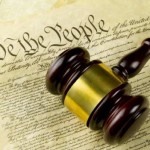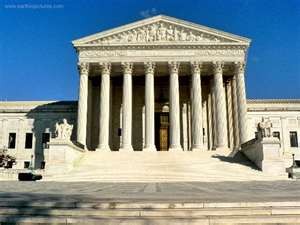Should the Senate Give Advice and Consent on Special Envoys?
 Last month the Senate Foreign Relations Committee passed the Department of State Authorities Act, Fiscal Year 2018, part of which would effect a major change in the law of foreign affairs appointments. With Congress’s summer recess now coming to an end, it’s worth considering the constitutionality of the proposed change and contemplating the Trump Administration’s potential response.
Last month the Senate Foreign Relations Committee passed the Department of State Authorities Act, Fiscal Year 2018, part of which would effect a major change in the law of foreign affairs appointments. With Congress’s summer recess now coming to an end, it’s worth considering the constitutionality of the proposed change and contemplating the Trump Administration’s potential response.
The key provision concerns ad hoc diplomats. Section 301 would require the Senate’s advice and consent for the appointment of “any Special Envoy, Special Representative, Special Coordinator, Special Negotiator, Representative, Coordinator, or Special Advisor.” On my reading, accompanying language suggests that this requirement would apply regardless of whether the positions in question already exist, regardless of whether Congress has authorized them by statute, and regardless of whether appointments have already occurred. As an enforcement mechanism, Section 301 would bar the obligation or expenditure of funds for any covered position to which an appointment is made without advice and consent. The only exception is for positions that extend for short periods of no more than six months and are certified by the Secretary of State as “not expected to demand the exercise of significant authority pursuant to the laws of the United States.”
This strikes me as a pretty big deal. Anytime the President seeks to designate an envoy to address a pressing issue, he would have to obtain the Senate’s approval. The Senate would thus be statutorily positioned to vet a whole new class of nominees, scrutinize and publicly debate the policies these individuals will implement, and, in extreme cases, block appointments that appear problematic. An optimistic take is that such an arrangement would promote meritocracy and encourage greater deliberation in the use and selection of ad hoc diplomats. The more pessimistic view is that Senate involvement would interfere with the conduct of foreign relations by introducing an additional source of delay and partisanship.
Whatever one makes of the practical merits of Section 301, there’s a sensible constitutional objection: Article II confers on the President the power to conduct foreign relations, the executive branch has invoked this power to justify a common practice of unilateral diplomatic appointments, and Congress has largely acquiesced. Indeed, ever since the Foreign Service Act of 1980, Congress has expressly accepted that the President may appoint envoys without advice and consent for special missions of up to six months in duration, as long as the President notifies the Senate Foreign Relations Committee in advance. In purporting to end this practice, Section 301 arguably violates the separation of powers.


